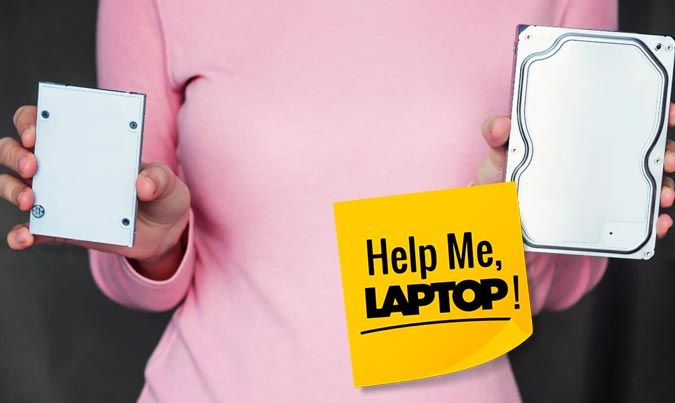Help Me, Laptop: Hard Drive or SSD?
Sign up to receive The Snapshot, a free special dispatch from Laptop Mag, in your inbox.
You are now subscribed
Your newsletter sign-up was successful
Choosing between large cars and fast cars can be tricky, but similar questions regarding laptop storage can be easier to answer.
So when forum user ally99 came to us with an AMD-based-laptop face-off, we instantly saw a crucial difference between their options:
Hi, What laptop specs are better for watching movies, browsing websites, The Sims 3 and 4, Minecraft and maybe a couple other little games:
2.5/2.9 GHz Dual Core AMD A6-9220, 256GB SSD, 8GB DRR4 RAM and UMA AMD Radeon R4 graphics or
3/3.6GHz AMD Dual-Core A9-9420, 1TB 5400 RPM hard drive, 8GB DRR4 RAM and AMD R5 integrated graphics?
Well, ally, we're happy you chose us as your ally in laptop speculation. For your gaming needs, those titles you listed seem modest enough in processor demands so that the integrated graphics in each laptop should be enough, as should their AMD processors.
That brings this debate squarely down to the choice between a spacious 1TB 5400rpm hard drive versus a 256GB SSD. We recommend the SSD-based model over the hard-drive model because it will give you speedier and more-reliable storage memory. Applications will load faster, and the drive will live longer.
Sign up to receive The Snapshot, a free special dispatch from Laptop Mag, in your inbox.
MORE: Laptops with the Best Productivity Performance
But for anyone else trying to make such a question, there are other questions to ask. What kind of SSD is this? If it's an eMMC SSD (commonly found in lower-end notebooks), then you might be better off with the moving-parts drive, as eMMC drives are frustratingly slower than all other SSDs.
If you just plan to stream movies from Netflix, Hulu or Amazon, you're better off with the SSD. But if you're looking to amass a collection of movie files, then the 1TB drive is probably better.
Credit: Alexander_Borisenko/Shutterstock
Windows 10 Storage and Backup
- Reclaim Hard Drive Space by Shrinking Windows 10
- Delete the Windows.old Folder in Windows 10
- How to Save Space By Cleaning Windows' WinSxS Folder
- Back Up Files with the File History Feature
- Mount and Burn ISO Files
- Format a Hard Drive For Both Windows and Mac
- Zip a File or Folder in Windows 10
- Control Which OneDrive Files Are Available Offline
- Map OneDrive as a Network Drive
- Fetch Any File on a Remote Computer with OneDrive
- 3 Ways to Save Space
- Free Disk Space Automatically with Storage Sense
- All Windows 10 Tips
- How to Install Apps to an External Drive
Henry was a contributing writer at Laptop Mag. He penned hundreds of articles, including helpful how-tos for Windows, Mac, and Gmail. Henry has also written about some of the best Chromebooks, and he has reviewed many Apple devices, including various MacBook Air laptops. He is now a managing editor at our sister site Tom's Guide, covering streaming media, laptops, and all things Apple.

